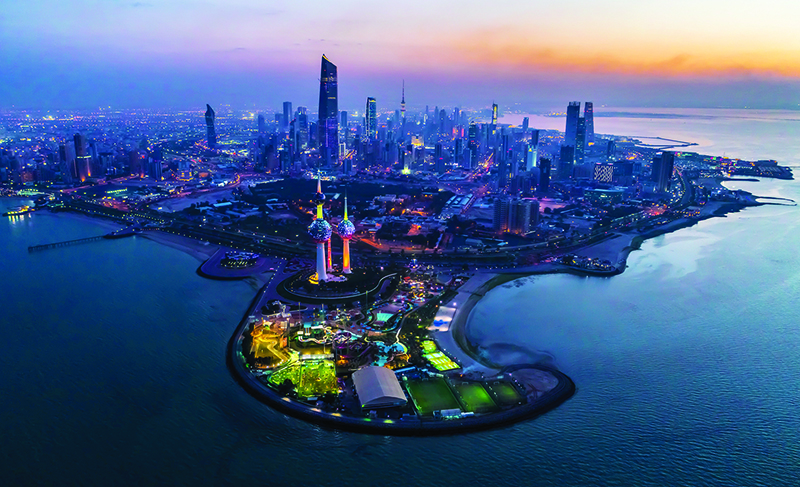
KUWAIT: Hugely dependent on its oil export revenues for economic growth, the impact of oil prices below $20 a barrel in April 2020 placed immense pressure on Kuwait’s finances, with the country’s fiscal deficit set to rise to 11.1 percent of GDP in 2020, along with rising debt and depletion of its financial reserves. Once it is through the COVID-19 health crisis, Kuwait’s highest priority should be to accelerate its New Kuwait Vision 2035 diversification and structural economic reform program to bring private investment and new job-creating industries into the country, says GlobalData, a leading data and analytics company.
Richard Thompson, Editorial Director GlobalData, comments: “With $288 billion of projects planned or underway, there is no shortage of potential opportunities in Kuwait. The country’s challenge is delivery. Sadly, for contractors, businesses and the economy at large, very little of what is planned is being brought to tender or contract award. As a result, the country’s projects market has declined every year since 2015, in terms of the value of project contract awards.
“In 2020, several major active oil schemes are due to be completed, including the $12 billion Clean Fuels Project, which was set to complete in April, and the $16 billion Al-Zour refinery, which should become partially operational in June. However, the completion of these projects will leave a vacuum in the oil sector, as there are no equivalent schemes in the pipeline that act meaningfully as a replacement.”
Outside the oil and gas sector, Kuwait Authority for Partnership Projects (KAPP) is eager to move forward with its programme of privately financed PPP projects. Kuwait’s banks appreciate the need for greater participation by local institutions in PPP projects, and increasingly see the positives in committing to long-term local project finance.
Thompson continues: “Whether the stumbling block is at a ministerial, parliamentary or lower level, Kuwait increasingly needs decisive government action, and far swifter implementation, moving forward if it is to achieve its socio-economic objectives.
“Despite having one of the world’s largest sovereign wealth funds, Kuwait persistently struggles to progress key infrastructure and development schemes because of schisms between the government and its elected parliament. The lack of cohesion between the two, exacerbated by often-bureaucratic procurement processes, is hampering the country’s ability to make progress on important projects.
“Most of Kuwait’s planned projects include urgently needed infrastructure developments, following more than a decade of underspending. To expedite the process, the government launched its ambitious New Kuwait Vision 2035 investment strategy. But for the plan to succeed, it is imperative for Kuwait to figure out how to bypass the roadblocks that have prevented progress in the past.”










